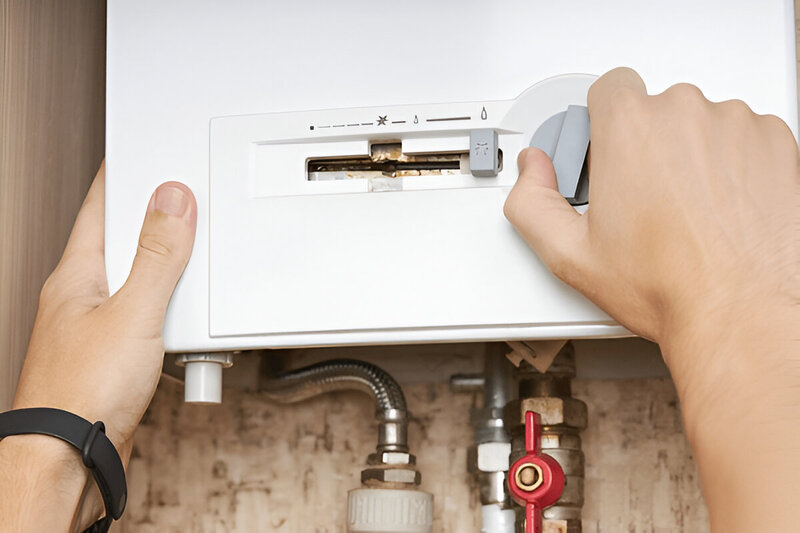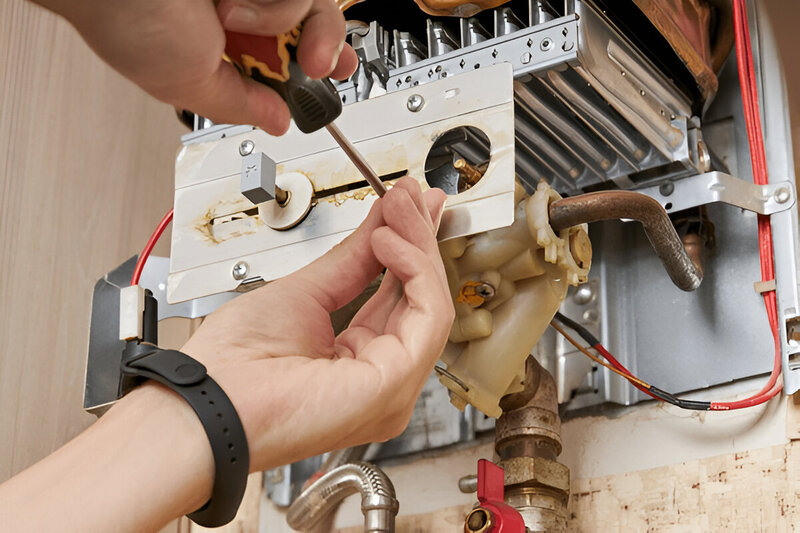How to Know When It’s Time for a Gas Heater Replacement

Has your gas heater seen better days? Is it struggling to maintain your comfort with the chillier weather? As a home improvements enthusiast, recognizing the warning signs of an aging gas heater can not only save you a significant amount in energy costs but also ensure your home environment is safe and cozy for you and your loved ones. In this blog post, we will delve into the telltale signs that your gas heater requires a replacement. Could it be time to put the old war-horse to rest? Let’s find out.
The question of when to replace your familiar old gas heater can be a tad unnerving. However, it doesn’t have to be. Armed with a little handy knowledge and a keen eye, you can understand when your heat source is nudging you towards an upgrade. Remember, a proactive homeowner is indeed a smart homeowner!
As an intelligent homeowner, understanding the lifespan of your gas heater, analyzing its performance, and noting any unusual activities can guide you towards making that decisive judgment call.
Understanding the Lifespan of a Gas Heater
A standard gas heater, under the right conditions and with proper maintenance, has a lifespan of about 15-20 years. But if yours is approaching or surpassed this milestone, you should consider seeking a professional assessment. An aging heater may have a harder time effectively warming your home, and it might well be time for a well-deserved retirement.
Regular maintenance can significantly increase the longevity of your heater. Just like humans, it enjoys robust health if it is taken well care of right from its younger days. If your heater has been regularly maintained and serviced yet still shows signs of struggle, it’s worth consulting with a professional to get your gas heater replacement now.
Hence, knowing the age of your appliance will help you estimate the remaining time of useful service. Remember that older models are less efficient and more expensive to operate than newer models, which might be the hint you need for a timely upgrade.
Analyzing Your Gas Heater’s Performance
A change in your heater’s performance is a definite red flag. It may be struggling to maintain a steady temperature, or you may notice a sudden increase in your monthly utility bills. An underperforming heater can significantly affect your comfort level and leave you reaching for extra layers of clothing.
It’s also imperative to check for cold spots around your house. If some areas are not being heated as they used to, it signifies your heater is unable to distribute heat evenly anymore. If you find that your heater is running more often but giving less warmth, that’s your cue for a potential replacement.
There’s no denying that a properly functioning, efficient gas heater ensures you and your family’s comfort during those biting winter months.
Spotting the Unusual Activities
Is your heater noisier than usual? Can you smell gas when it is switched on? Has it started sooting or displaying a yellow burner flame instead of blue? These are severe warning signs that warrant immediate professional attention.
If you encounter these signs, switch off the heater and contact a licensed professional to check for carbon monoxide leaks. Your gas heater might be attempting to sing its swan song, and replacing it might be the safer and shrewder choice.
Remember, ignoring these symptoms can lead to serious safety challenges and health risks. So, be aware, be safe!
Pros and Cons
Replacing your gas heater can be a substantial investment. Therefore, it’s essential to weigh the pros and cons before taking the leap. On the flip side, operating an old, inefficient gas heater can also become a significant drain. You might find yourself paying much more in utility bills over time than you would shell out for a new energy-efficient appliance.
Investing in a modern, energy-efficient gas heater can reduce your monthly utility bills, provide reliable and consistent heating, and offer peace of mind with safety upgrades. The drawbacks? Initial costs are the obvious downside, and for some, parting with their trusty old appliance may bring a pinch of emotional discomfort.
However, when safety and efficiency are at stake, it’s wise to move with the times.
The Expert Opinion
The complexity surrounding gas heaters tends to make your decision-making process imminent. When in doubt, seeking professional advice can help guide your decision. A licensed expert can do a thorough assessment of your appliance and recommend whether to go in for repairs or opt for a replacement.
Your expert will consider factors such as the age, operating condition, repair history, and safety level of your heater. They can provide you with the best-suited solution that is both budget-friendly and guarantees your home’s warmth and safety.
Conclusion
Recognizing the signs indicating towards a gas heater replacement is a journey in smart homeownership that could take your comfort, peace, and safety to new levels. Understanding your gas heater’s lifespan, noticing performance issues, and spotting unusual activities can aid in recognizing these signs.
While the decision to replace may seem daunting, weighing the pros and cons allows clarity to permeate through. There are ecstatic moans of a cozy, warmer home, lower utility bills, safer operation, and then there is the slight prick of initial cost and parting away. A professional expert by your side can significantly smooth out the bumps of this decision-making journey.
So, is it time to retire your old gas heater? Only you – the proactive homeowner – can answer. With the right knowledge, decisive action, and considered guidance, you will not only maximize your comfort and safety but also contribute to a greener environment by choosing a more energy-efficient option.








